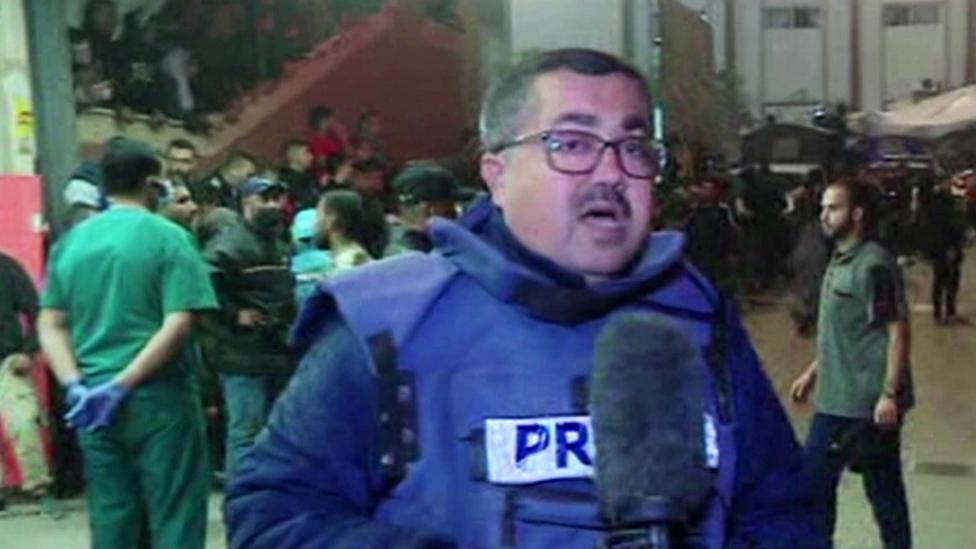Issam Abdallah: Rights groups want Israel investigated over killed journalist
- Published
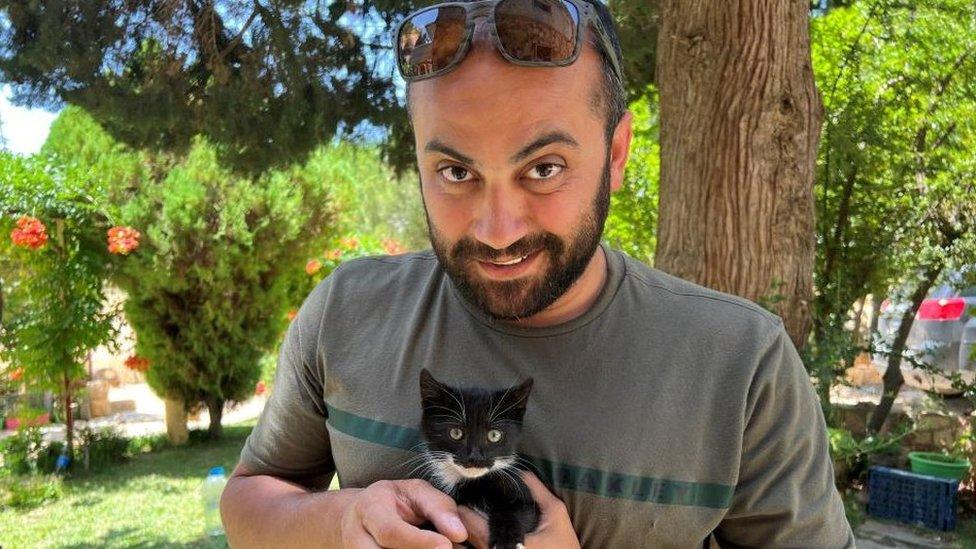
Reuters journalist Issam Abdallah died in an apparent strike across the Israel-Lebanon border
Rights groups say Israel should be investigated for a possible war crime over the death of a journalist in Lebanon in October.
Reuters reporter Issam Abdallah, 37, died in two apparent strikes across the Israel-Lebanon border in October. Six others were wounded.
Amnesty and Human Rights Watch (HRW) said investigations showed the journalists were probably fired on deliberately by an Israeli tank crew.
Israel denies targeting the reporters.
"We do not target civilians," Israeli government spokesperson Eylon Levy said when asked about the reports from Amnesty and HRW.
"We've been doing everything possible to get civilians out of harm's way," Eylon added in a televised briefing.
The group of seven journalists from Reuters, Al-Jazeera and AFP, were filming about 1km from the Lebanon-Israel border on 13 October.
Amnesty said images showed the journalists were wearing body armour marked with the word "PRESS", and the Reuters crew car was marked "TV" with yellow tape on its bonnet.
They were on a hilltop in an open area with no tree cover or other buildings to obscure them from nearby Israeli military outposts, Reuters said. Drones had been overhead and an Israeli helicopter had been patrolling, it said.
Abdallah was killed instantly in the strike. Two more Reuters journalists, two from AFP and two from Al Jazeera were all wounded. AFP photographer Christina Assi, 28, later had a leg amputated and is still in hospital.
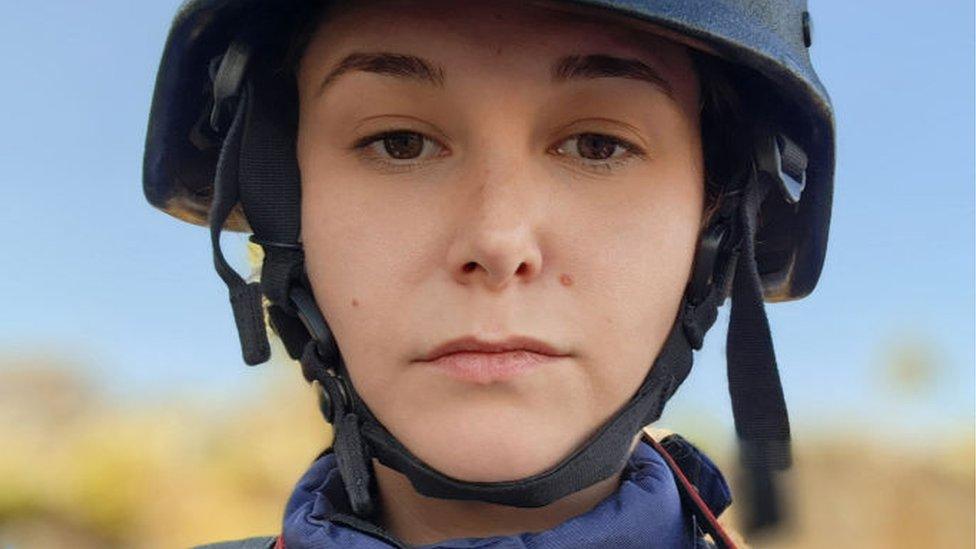
AFP's Christina Assi had a leg amputated after the strike
Amnesty's deputy regional director Aya Majzoub said the organisation's investigation indicated it was "likely a direct attack on civilians" and should be "investigated as a war crime".
"Those responsible for Issam Abdallah's unlawful killing and the injuring of six other journalists must be held accountable," Majzoub added.
Human Rights Watch (HRW) said the strikes "were apparently deliberate attacks on civilians, which is a war crime".
The group said its investigation showed the journalists were "well removed from ongoing hostilities, clearly identifiable as members of the media, and had been stationary for at least 75 minutes before they were hit".
Separately, Israel Defense Force (IDF) spokesperson Richard Hecht said the military did not target journalists when Reuters presented him with its own findings on the incident. The Israeli prime minister's office did not respond to Reuters' requests for comment.
AFP's global news director also said the agency had shared its latest findings with the Israeli military but had not received a response.
Sixty-three journalists have been killed since the start of the war, according to the Committee to Protect journalists.
Related topics
- Published6 December 2023
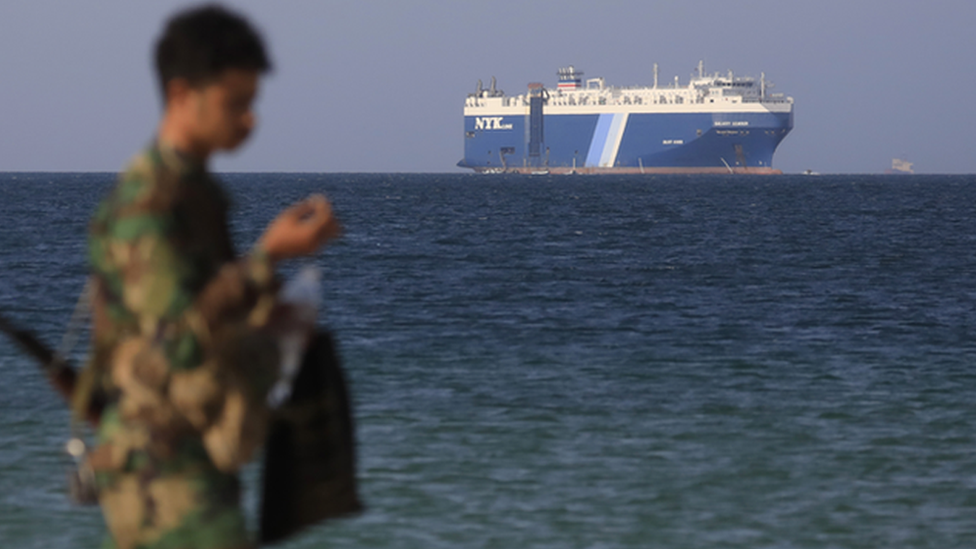
- Published21 November 2023
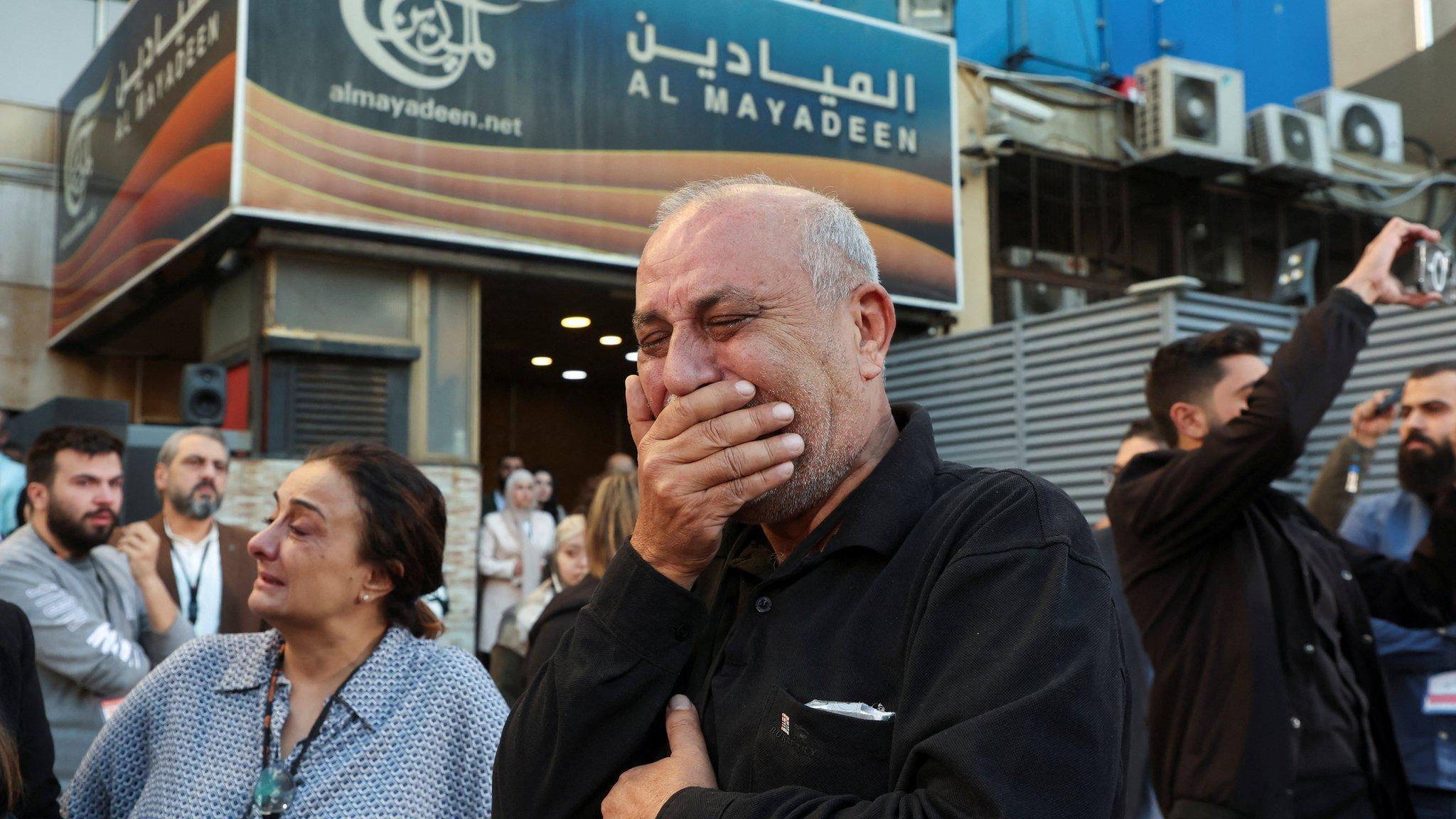
- Published6 December 2023
